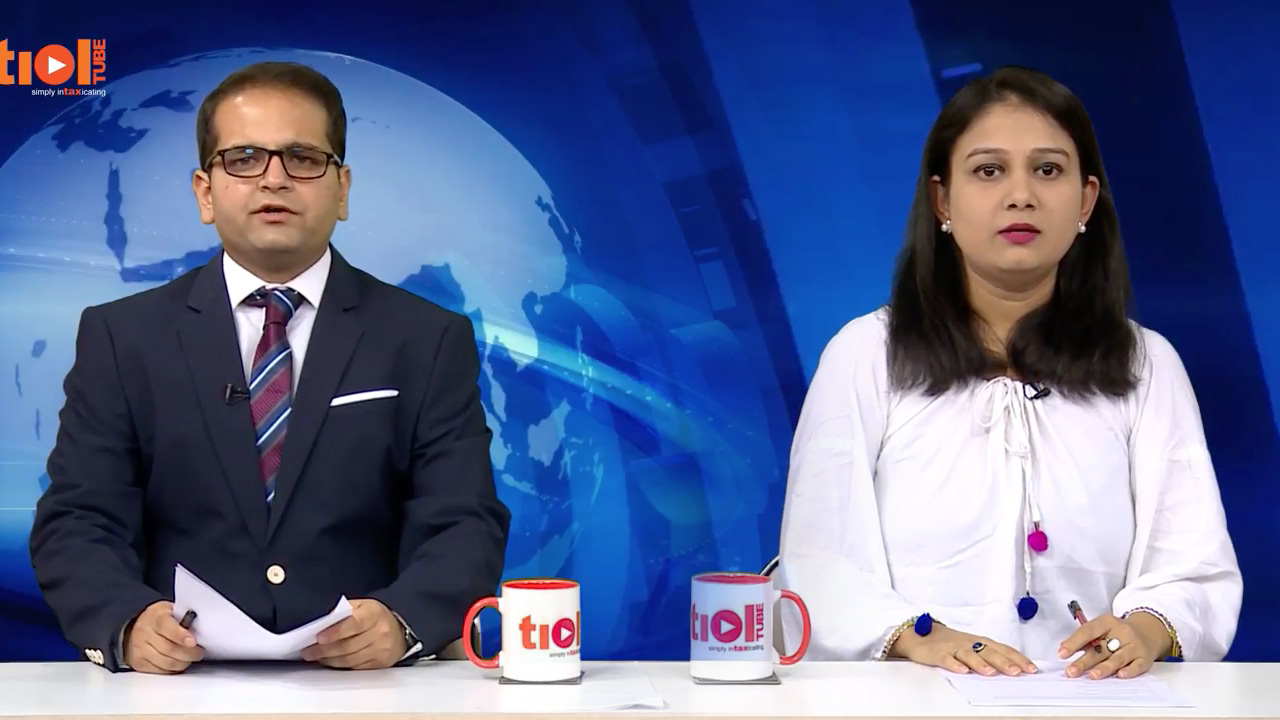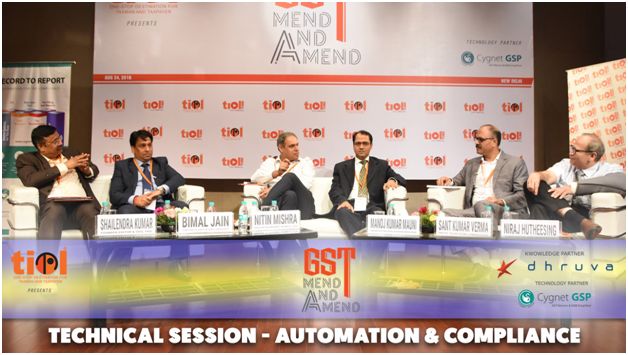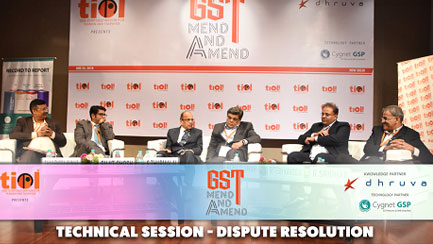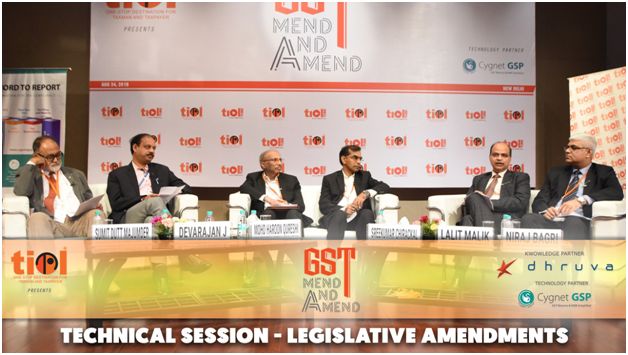SERVICE TAX
2018-TIOL-2921-CESTAT-AHM
Green Channel Travel Services Pvt Ltd Vs CST
ST - Issue relates to demand raised under rent-a-cab service - There are some other demands one is Rs. 17,968/- for the period 2001-06 under the head of tour operator and the other one is Rs. 16,250/- for the period of 2001-2002 under the head of management consultancy services - As regard to demand under the head of rent-a-cab, the demand involved in the SCN in the present case already stand dropped by Commissioner in order dated 15.10.07, therefore, the demand in the present case even though under the different head would not survive - In view of judgments in Shreeji Colourchem Industries 2008-TIOL-1973-CESTAT-AHM and Siddharth Tubes Ltd. , it is clearly settled that for the same period on the same issue, the demand cannot be raised twice by issuing the second SCN - Accordingly, the demand of Rs, 2,15,405/-is not sustainable hence, the same is set aside.
As regards the demand of Rs. 17,968/- for the period 2001-06 under the head of tour operator, it is observed that this amount is related to hotel booking charges which during the relevant period was not covered under definition of tour operator - However, the same was subsequently covered in the definition w.e.f 10.09.04 - Therefore, the demand for the period prior to 10.09.04 on the hotel booking charges is not sustainable - Accordingly, demand for the period prior to 10.09.04 set aside - However, demand pertaining to the period from 10.09.04 is upheld - As regards the service tax demand on management consultancy service for the period 2001 for Rs. 16,250/-, same is upheld as not contested: CESTAT
- Appeal partly allowed : AHMEDABAD CESTAT
2018-TIOL-2920-CESTAT-MAD
H Kannan Prop Of Unikans Vs CCE & ST
ST - M/s. Unikans is a proprietary concern owned by Shri H. Kannan rendering services under category of (CICS) - During the course of audit of assessee, the various discrepancies found - Accordingly, SCN was issued proposing demand along with interest thereon as also imposition of penalty under various provisions of law - The issue of includibility of value of free supply made by service recipient in assessable value for determining service tax liability, has been laid to rest by Apex Court in case of Bhayana Builders Pvt. Ltd. 2018-TIOL-66-SC-ST - The Apex Court in their landmark judgment has unequivocally held that value of goods / materials supplied free of cost by service recipient and used for providing taxable service of construction and industrial complex is not to be included in "gross amounts" because no price is charged for that by the assessee / service provider - Following the same, that part of impugned order confirming tax demand on this score is set aside.
As regards to demand of service tax on TDS amounts and not included by assessee, there is no doubt that these amounts are required to be included in assessable value - Assessee would be eligible for 67% abatement on the amount of TDS and accordingly the service tax liability is required to be re-quantified - Demand on this count remanded to adjudicating authority for examining the claim of assessee on eligibility of abatement in the value of taxable service - Coming to the demand on CICS provided to educational institutions, the department has come in appeal against the non-confirmation of demand by the adjudicating authority - This particular issue has been addressed in a number of Tribunal decisions and decided in favour of assessee.
Only demand that survives is that of non-inclusion of TDS deducted by the service recipient -No doubt, there is full clarity with regard to inclusion of these amounts at this point of time - However, it cannot be denied that the issue was very much mired in confusion and litigation for quite some time - In the circumstances, there was reasonable cause on the part of assessee in his failure to discharge tax liability on portion of TDS amounts - Penalty on assessee under Section 78 ibid is surely an overkill and same is set aside - For the same reasons, there cannot be any penalty under Section 76 & 77 ibid: CESTAT
- Revenue's appeal dismissed : CHENNAI CESTAT
2018-TIOL-2919-CESTAT-DEL
Indian Institute Of Technology Vs CST
ST - The assessee, a reputed institution engaged in imparting education, provided manpower recruitment service by providing facility for securing recruitment of its students - It collected some fees from the students - The Department alleged that the assessee received online information and data base access or retrieval services from the INDEST-AICTE consortium and that the same was taxable - Duty demands were raised - Further demands were raised on account of short payment of tax.
Held: The assessee need not pay service tax under manpower recruitment & supply service as it is not a commercial concern - It did not provide any service to a commercial concern - Considering the Tribunal's decision in Motilal Nehru National Institute of Technology vs. CE & ST, Allahabad the demands on this count are set aside - Regarding the taxability of 'online information and data access or retrieval service', it is not received in relation to any business or commerce - Hence no tax liability is attracted - Besides, such service was received by the assessee acting as a representative of all educational institutions & so will not attract service tax - Moreover, no extended limitation is invokable as there is no suppression of fact or any mala fide intention on part of the assessee - Hence the demands are set aside: CESTAT (Para 2,34)
- Appeal allowed : DELHI CESTAT
CENTRAL EXCISE
2018-TIOL-2918-CESTAT-MAD
Hindustan Coca Cola Beverages Pvt Ltd Vs Commissioner of CGST & Central Excise
CX - The assessee company is engaged in the manufacture of aerated water, packaged drinking water, fruit juice & pulp based drinks - It availed cenvat credit of Outdoor catering services - Such availment was challenged by the Department - Duty demands with interest were raised for recovery - Penalties were imposed as well - Such disallowance was upheld by the Commr.(A).
Held: Considering the definition of 'input service' u/r 2(l) of CCR 2004, the last clause of the definition excludes those services provided in relation to Outdoor catering as such services are primarily used for personal use or comsumption of an employee - Besides, in M/s. Wipro Ltd. (E/20420/2015 dt. 09.02.2018) the Tribunal held that credit cannot be allowed on such service post 01.04.2011: CESTAT (Para 1, 5.1,5.2)
- Appeals allowed : CHENNAI CESTAT
2018-TIOL-2917-CESTAT-AHM
Kaira Can Company Ltd Vs CCE & ST
CX - The assessee company manufactured Metal Containers - The issue at hand is whether the value of the packing material supplied by the customer can be included in the assessable value of goods manufactured by the assessee.
Held: Considering the mandate of Section 4 of the Act, it is seen that if the price is a sole consideration for the sale of the goods, the transaction value for such sale of the goods would be assessable value u/s 4(1)(a) - Presently, the customer supplied free of cost packing material to the assessee - Also considering Rule 6 of the Valuation Rules, it can be seen that the value of packing material consumed in the production of goods shall be included in the transaction value - Packaging of goods is carried out only after the final product is manufactured & the packaging material cannot be consumed - It loses its identity in the manufacture of final product - Besides, the authority of Rule 6 flows from mandate of Section 4(1)(b) and cannot be said to have overriding effect over the latter - Hence in conjoint reading of both provisions, , the packing material supplied free of cost by the customer is includable in the transaction value and would attract excise duty: CESTAT (Para 1,4)
- Appeal dismissed : AHMEDABAD CESTAT
2018-TIOL-2916-CESTAT-HYD
Lakshmi Balaji Bottling Pvt Ltd Vs CC & CE
CX - The plant of assessee is capable for manufacture of both dutiable and exempted products - The assessee had intimated his intention to use the machinery (at the time of receipt of the capital goods) to manufacture both exempted and dutiable goods but had used the plant exclusively for manufacture of exempted goods for the first two years - Thereafter, he used a plant for manufacture of dutiable products for a short period of 19 days and thereafter never used a plant for manufacture of dutiable products - A plain reading of Rule 6(4) of CCR, 2004 shows that no credit is admissible on capital goods used exclusively in manufacture of exempted goods or in providing exempted services - There is no requirement of capital goods to be used any specified extent in manufacture of dutiable goods - The next question to be decided is whether the entitlement of capital goods should be decided based on how they are used at the time of receipt of capital goods - Following the ratio of decisions in case of Brindavan Beverages Pvt. Ltd. - 2014-TIOL-2136-CESTAT-DEL and Pepsico India Holdings Ltd., it is held that assessee is entitled to the benefit of CENVAT credit on capital goods on the Line 3 of their plant as it was declared to be meant for manufacture of both dutiable and exempted products and used for manufacture of dutiable products although for a mere 19 days - Consequently, the demand, interest, penalty and personal penalty are set aside: CESTAT
- Appeal allowed : HYDERABAD CESTAT
CUSTOMS
NOTIFICATION
dgft18not034
Amendment in Export Policy of Chemicals under Appendix 3 (SCOMET items) to Schedule-2 of ITC (HS) Classification of Export and Import Items, 2018
CASE LAW
2018-TIOL-2915-CESTAT-KOL
National Aluminum Company Ltd Vs CC
Cus - The assessee imported subject goods - It intended to clear the goods under Project Import Regulation - Thus, it kept the imported goods under Customs bonded warehouse till the grant of registration by the competent authority - It obtained the recommendation from sponsoring authority and after finalization of the contract registered under PIR-86 the assessee submitted the reconciliation statement - In addition, final payment certificate was submitted by the assessee - As a matter of fact, no irregularity was informed by the Customs - However, after the gap of six years the demand for short levy was issued under Section 28(1)(b) of Customs Act, 1962 seeking the denial of Project Import Benefit - Differential duty demand was raised - Hence, the present appeal by the assessee.
Held - Rules 4 and 5 provides that registration of the contract for availing the benefit of Project Import has to be done on or before their importation - The finding by Commr. (A) that the registration should be done prior to import is not correct - Until the assessee received Sponsoring Authority Certificate permitted by the Customs it did not clear the goods - Therefore, there is no violation of project import benefit by the assessee - Moreover, the assessee was registered for benefit under project import benefit initially, after the lapse of seven and a half years - The Department can't take the stand contrary to that at the time of finalization denying the concessional rate of duty under project import - Hence, the order under challenge is set aside : CESTAT (para 1, 5, 6, 7)
- Appeal Allowed : KOLKATA CESTAT
|








